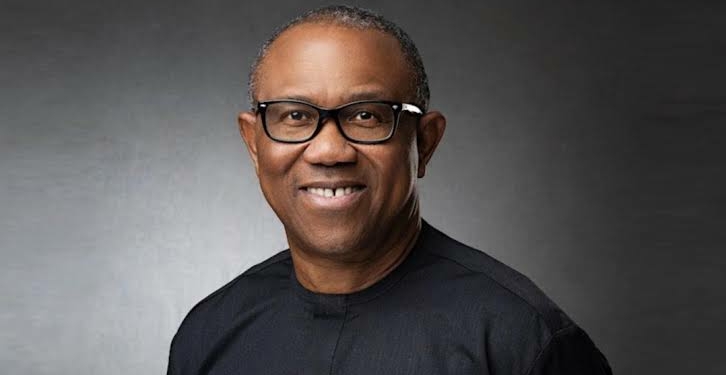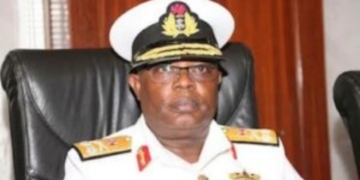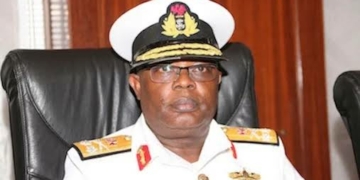If the Nigerian presidential election on February 25, 2022 is successful, it will rank among the largest elections in the history of the continent’s superpower. Due to the numerous concerns involved, it is expected to be the most challenging election in the nation’s phistory.
According to some political observers, it is expected to be the most challenging election in the nation’s history.
Four political parties — the All Progressives Congress, the People’s Democratic Party, the New Nigeria Peoples Party (NNPP) and the Labour Party—have emerged as the front-runners among the 18 political parties that have expressed interest in the upcoming presidential election.
The All Progressives Congress is running a candidate for president named Asiwaju Bola Ahmed Tinubu, a former governor of Lagos (APC). Former vice president Atiku Abubakar is the Peoples Democratic Party’s (PDP) presidential candidate.
Peter Obi, a former governor of Anambra State, is the LP’s nominee for president (LP). Former governor of Kano State Rabiu Kwankwaso is the New Nigeria Peoples Party’s nominee (NNPP).
Many young Nigerians have expressed their support for Peter Obi on social media sites after he emerged as the Labour Party’s nominee.
According to these online users, Peter Obi is a third force and a messiah who will free Nigerians from the bonds of poverty.
When it all began, these supporters known as “Obidients” ran a violent campaign and attacked every elite, social media personality, or person who supported a different candidate besides Peter Obi. They controlled every social media channel.
These obidients were present on Facebook, Twitter, Instagram, Tiktok, and Whatsapp, among other platforms. Obedients are still active on social media platforms as the election nears, but they are not as aggressive or assaulting as they once were.
Will Obidients be able to organize during the election? Will they be able to band together and get votes from folks who do not use social media? Will they be able to convert their backing into votes in 2023? Is Peter Obi’s party widely popular across the country? Can Peter Obi defeat Tinubu and Atiku in the 2023 presidential election? If Peter Obi were to win, his supporters would need to know the answers to these inquiries.
Despite Peter Obi’s popularity, there are concerns over whether he will actually win the election. Only a political party with a nationwide following has the ability to win the presidency, according to historical data. Any party that does not have political infrastructure in every section of the nation would lose the election.
Olusegun Obasanjo defeated Muhammadu Buhari, his closest rival, by more than 11 million votes in 2003. Olusegun Obasanjo received 24,456,140 votes, whereas Buhari received 12,710,002 votes, notwithstanding his acceptance in the core North.
The core North, where Buhari’s former party, the All Nigeria Peoples Party (ANPP), has political infrastructure to secure or protect votes from followers, accounted for the majority of Buhari’s votes.
A national party, the Peoples Democratic Party (PDP), held the presidency for 16 years before being ousted by the All Progressives Congress (APC).
Remember that the All Progressives Congress was founded by a group of disgruntled Peoples Democratic Party members, three main political parties, and the nPDP (APC).
The results showed that the Peoples Democratic Party (PDP) had defeated these main parties, including the Congress for Progressive Change (CPC), Action Congress of Nigeria (ACN), and All Nigeria Peoples Party (ANPP), in different ways throughout the election. These parties could not defeat the PDP on their own until they banded together and created a larger platform.
In addition, the party Peter Obi is running for has no governors in office, only one senator out of the 109 senators in the red chamber, and no seats in any of the 991 state assemblies. The party lacks a chairman and council representatives. Social media is not used to win elections in Nigeria. Elections are won by established political structures.
Lasun Yusuf, the Labour Party’s candidate for governor in Osun 2022, received 2729 votes. the election, which took place in July 2022, at the height of Peter Obi’s online fame.
The former governor candidate recently joined Atiku Abubakar’s campaign team and is currently a Peoples Democratic Party (PDP) member.
If there is any party that needs to be more cohesive, more flexible, and more inclusive, it should be the Labour Party because of the lack of established institutions, which was seen in the recent gubernatorial election in Osun where Labour Party has no agents in some polling units.
Sadly, there are significant problems, including a leadership crisis that may have been sparked by campaign donations, among others.
Rural areas have clearly been neglected.
The Labour Party and its presidential candidate, Peter Obi, are unknown in some rural areas. It is commonly known that rural residents vote more frequently in every election. The majority of them are illiterate and have little to no knowledge of social media, making up a higher proportion of eligible voters who they represent.
It appears that the choice of running mate is improper politically. Peter Obi, a politician with strong roots in the south-east but no obvious ties to the North that could have swayed voters in his favor, ought to have selected a well-liked politician as his running mate.
The founder of Baze University and former senator for Kaduna North from 2011 to 2012, Yusuf Datti-Ahmed, has little sway in Kaduna. He was also a member of the House of Representatives from 2003 to 2007.
However, he has a delivery challenge of nineteen (19) states with a party lacking any established institutions in the core North.
Some political observers, however, have said that Peter Obi is in charge of armies of young Nigerians who fervently want a change in the way this nation is run. These young Nigerians are desirous of a functioning country and trust Peter Obi, if elected, to bring it about.
Will Peter Obi be able to overcome Tinubu, Atiku, and others in the face of these youthful armies of prepared Nigerian youngsters on social media?




Discussion about this post